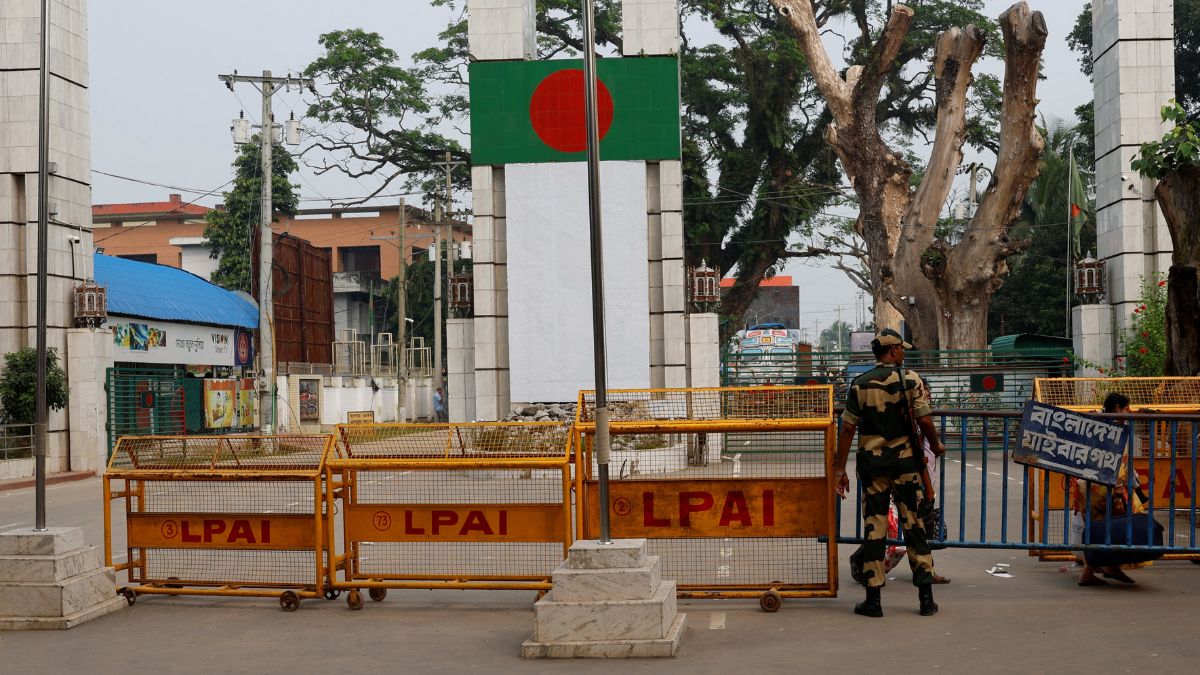Bangladesh and Pakistan are deepening their military ties, raising concerns in India. Over the past few months, multiple high-level defence meetings and intelligence exchanges have taken place between the two nations, signalling a notable thaw in their historically fraught relationship.
The evolving ties come at a time when Bangladesh’s political leadership is undergoing transition, with an interim government that appears to be recalibrating Dhaka’s foreign policy stance.
Last month, Bangladesh’s Chief of Naval Staff, Admiral Mohammad Nazmul Hassan, met with Pakistan’s Army Chief, General Syed Asim Munir Ahmed Shah, in Rawalpindi. This meeting marked the second high-level military engagement between the two nations in just one month.
Previously, a Bangladeshi military delegation led by Lt. Gen. SM Kamrul Hasan visited Rawalpindi, engaging in discussions with the Pakistani Army, Air Force, and Navy chiefs.
Bangladesh is also participating in the multinational naval exercise hosted by Pakistan, with China sending a significant delegation of PLA officials, further indicating Beijing’s influence in shaping regional military dynamics.
The military interactions are not limited to naval cooperation. The Pakistani military is reportedly planning to conduct training sessions for Bangladesh Army officials in the coming months.
Dhaka has also hosted several high-ranking Pakistani military officers, including the head of Pakistan’s spy agency, the Inter-Services Intelligence (ISI), since the departure of former Prime Minister Sheikh Hasina. These visits signal a growing military alliance between the two nations, something that was largely absent during Hasina’s tenure.
ISI’s presence in Bangladesh raises security concerns
Pakistan’s ISI has increased its engagements with Bangladesh, with top intelligence officials making their first official visit to Dhaka in nearly two decades. Major General Shahid Amir Afsar, the Director General of Analysis at ISI, led a four-member delegation to Bangladesh, marking a milestone in intelligence cooperation between the two nations.
The visit closely followed a Bangladeshi military delegation’s trip to Rawalpindi, where they met top-ranking officers of the Pakistan Army, Air Force, and Navy.
This back-to-back exchange of high-level officials has raised red flags in New Delhi, with India’s Ministry of External Affairs stating that it is keeping a close watch on developments in its immediate neighbourhood. “We keep an eye on all activities around the country and in the region, as well as all activities affecting our national security, and the government will take appropriate steps,” said External Affairs Ministry spokesperson Randhir Jaiswal.
India has long been wary of ISI’s activities in Bangladesh, particularly its historical involvement in fostering insurgency in India’s northeastern states.
Under Sheikh Hasina’s leadership, ISI’s operations in Bangladesh were largely curtailed, but the recent developments suggest a revival of intelligence collaboration between Dhaka and Islamabad.
China’s role in strengthening Bangladesh-Pakistan ties
China appears to be playing a crucial role in facilitating the growing defensce cooperation between Bangladesh and Pakistan. Bangladesh imports nearly 72 per cent of its military equipment from China, making Beijing a key player in shaping its defence strategy. '
China’s influence is also evident in the increasing military interactions between Bangladesh and Pakistan, with Beijing reportedly advocating for stronger ties between the two nations.
With Bangladesh planning to acquire 16 new warships by 2030, Pakistan’s expertise in naval training and technology transfer could become a critical factor.
Given the strategic importance of the China-Pakistan Economic Corridor (CPEC) and Gwadar Port, Bangladesh’s growing relations with Pakistan could further enhance China’s influence in the Indian Ocean region.
Diplomatic and political realignments
Beyond military collaboration, diplomatic engagements between Bangladesh and Pakistan have also intensified. In recent months, Bangladeshi and Pakistani leadership have held multiple meetings at international forums.
Interim Bangladeshi leader Muhammad Yunus met Pakistani Prime Minister Shehbaz Sharif in Cairo and previously on the sidelines of the United Nations General Assembly (UNGA) in New York.
Additionally, Pakistani Foreign Minister Ishaq Dar is expected to visit Dhaka next month, marking the first high-ranking visit from Pakistan’s foreign ministry to Bangladesh since 2012.
Observers believe that Bangladesh is seeking to diversify its foreign policy alignments after years of close ties with India under Sheikh Hasina’s leadership.
The interim government has eased trade restrictions on Pakistan, removing the requirement for physical cargo inspections, and has even explored the possibility of re-establishing direct sea links between the two countries, which had been severed since 1971.
Strategic implications for India
The strengthening Bangladesh-Pakistan alliance carries significant implications for India, particularly in the northeastern region.
Historically, ISI has used Bangladeshi territory to fund and support insurgencies in India’s northeast, a trend that was curbed during Hasina’s rule. However, with ISI’s renewed presence in Bangladesh, concerns are growing in New Delhi over the potential resurgence of such activities.
India has responded to these developments by bolstering its border security with Bangladesh. The Border Security Force (BSF) has deployed advanced surveillance technology along key border points, particularly in the Siliguri Corridor — a strategically vital land passage connecting India’s northeast to the rest of the country.
High-level inspections by Indian defence officials are also underway to assess the potential security risks posed by the evolving Bangladesh-Pakistan military relations.
With inputs from agencies


)

)
)
)
)
)
)
)
)



